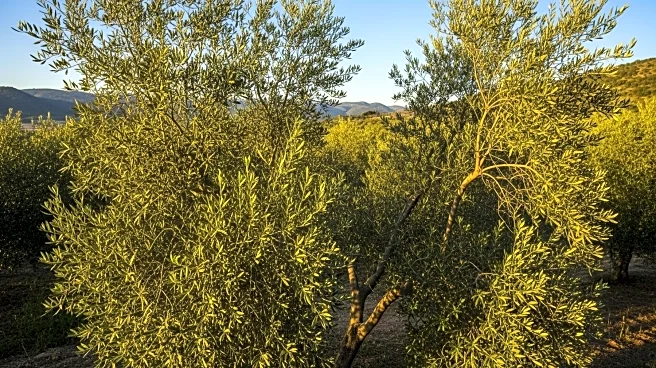What's Happening?
Israel's Ministry of Agriculture and Food Security, along with the Reconstruction Administration, has announced a financial initiative to restore agricultural areas damaged during the Iron Swords war. The government will provide 9 million Shekels, equivalent to USD 2.72 million, to rehabilitate lands affected by military activities and terror attacks. The war led to significant damage to soil structure and fertility, impacting the growth capacity and quality of agricultural crops. Access to some fields was restricted, preventing necessary treatments and potentially affecting agricultural productivity for several seasons.
Why It's Important?
The restoration of agricultural lands is crucial for Israel's food security and economic stability. Agriculture plays a significant role in the country's economy, and the damage from the Iron Swords war poses a threat to crop yields and food supply. By investing in the rehabilitation of these areas, Israel aims to ensure the continuity of agricultural production and mitigate long-term impacts on the sector. This initiative reflects the government's commitment to supporting farmers and maintaining the agricultural industry's viability amidst challenges posed by conflict.
What's Next?
The allocated funds will be used to implement soil restoration techniques and improve access to affected fields. The Ministry of Agriculture and Food Security will oversee the rehabilitation process, ensuring that necessary treatments are carried out to restore soil fertility and crop growth capacity. Farmers and agricultural stakeholders are expected to collaborate with government agencies to expedite the recovery process. Monitoring and evaluation will be essential to assess the effectiveness of restoration efforts and make adjustments as needed.
Beyond the Headlines
The initiative highlights the broader implications of conflict on agricultural sustainability and food security. It underscores the need for strategic planning and investment in agricultural resilience to withstand future disruptions. The restoration efforts may also prompt discussions on improving agricultural practices and infrastructure to enhance resilience against similar challenges.










